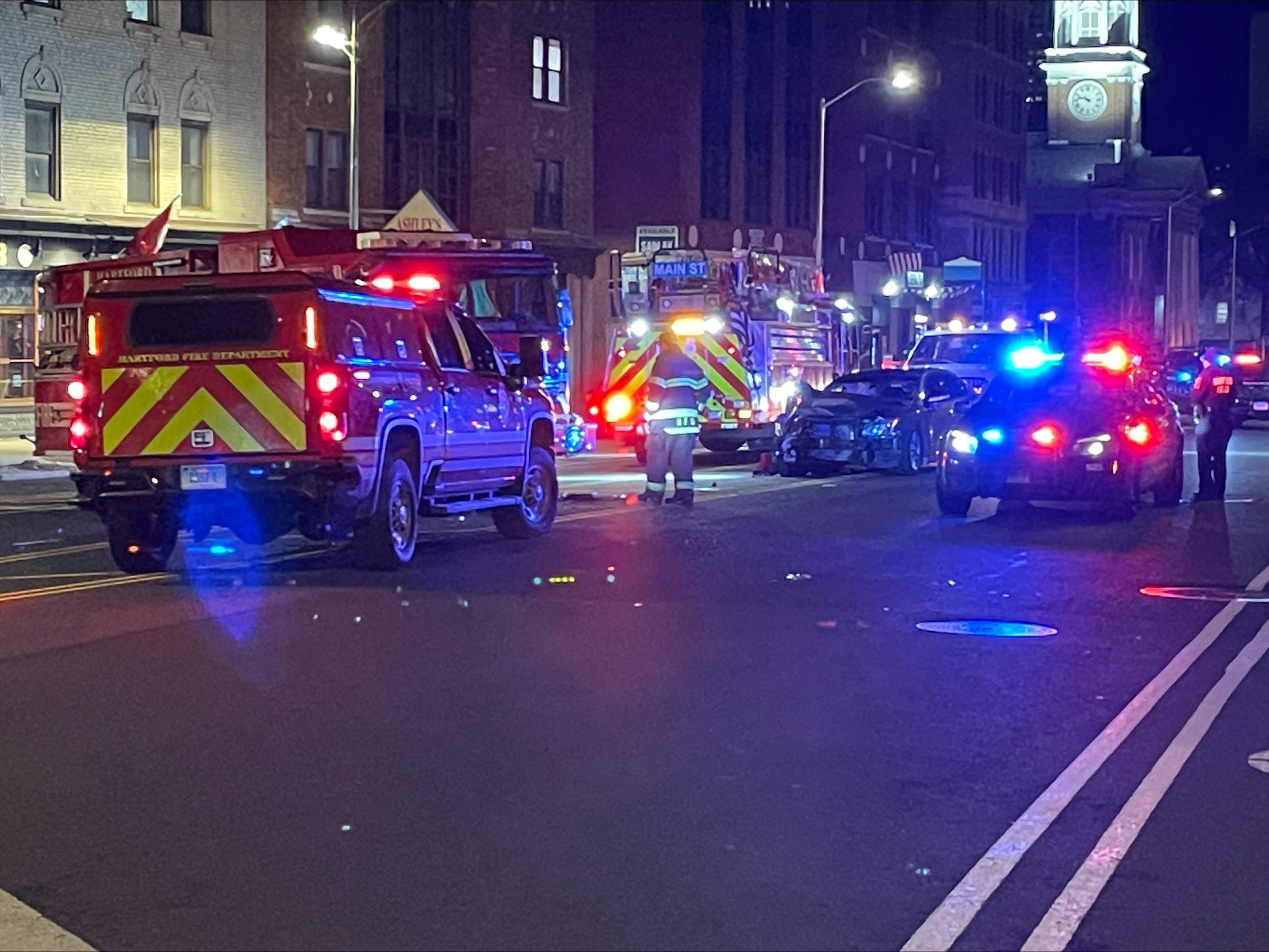Three years ago today, George Floyd was murdered by Minneapolis police officer Derek Chauvin as other officers looked on. It is a case that sparked outrage and protests across the globe, and change, as police departments across the country re-examined their policies.
When George Floyd was pinned down, activists with BLM860 stepped up, making sure their protests were heard.
“We want to prevent these tragic deaths, because run-ins with the law, they're not supposed to end in a death sentence,” Ivelisse Correa, BLM860 vice president, said.
Floyd’s death feels fresh for members of the Hartford group, who say they have not stopped fighting for social justice.
Get top local stories in Connecticut delivered to you every morning. >Sign up for NBC Connecticut's News Headlines newsletter.
“I've seen a lot of changes within the years, but then I noticed like everybody's gone back to getting comfortable,” Bola Kimba Oretade, BLM860 president, said. “We're not okay with where we at. We're okay with progression, but we still need more progression.”
They are some of the artists behind downtown Hartford’s Black Lives Matter mural. But beyond unity, they want accountability, especially for police.
“There have been some reforms, they've been pretty watered down,” Correa said. “I feel that Connecticut, you know, gives themselves way too much credit. We should be an example. We shouldn't lay on our backs and just say 'hey, well, we're a little bit better./ So when we have less deaths, we should be working to have no deaths.”
Local
NBC Connecticut reached out to police departments in Connecticut’s 10 largest cities to discuss what has changed in the three years since Floyd’s death. Two responded.
Greenwich Police Deputy Chief Mark Zuccerella tells us that the department created a document in June of 2020, to explain to the citizens how they police, including information on ICAT training for officers to safely defuse a range of critical incidents.
Zuccerella referenced the Police Accountability Act, PA 20-1, which passed in July of 2020 after Floyd’s death, and mandated many changes in how Connecticut police departments operate.
“All of the changes put forth by the public act were already policies and practice of the Greenwich Police Department,” Zuccerella said in a statement. “The department at that time had already attained accreditation through the State of Connecticut and was involved in many of the procedures, trainings and tactics the public act required, as well as following the guidance of the 2015 President’s Task Force on 21st Century Policing.”
The Connecticut law made body cameras mandatory for all police and banned the use of chokeholds in most cases. It created a new independent inspector general to investigate and prosecute deadly use of force. It expanded reasons why officers can be decertified.
In addition, the Police Accountability Act requires a duty to intervene, meaning officers must step in if they see a fellow officer using excessive force.
The law enacted changes to qualified immunity, which makes it easier for those who believe they have been wronged by police to file lawsuits against departments, officers, or towns.
“We've worked closely with our union leadership and our law legislative leaders to kind of understand and work through the past several years,” Waterbury Police Chief Fernando Spagnolo said.
At the Waterbury Police Department, Spagnolo says he believes parts of the Act, like qualified immunity, need to be re-looked at with legislators or better understood, and he says the mandates must be operationally feasible.
However, Spagnolo says he has seen benefits.
“Police officers are human beings that have feelings, they may go to a situation that is very like their life, or their circumstances, and that may trigger something. So having the ability to make sure those officers are having their behavioral health checked up on is a really good thing,” Spagnolo said.
“Having enhanced drug testing, I think is a good thing,” he continued. “In some of the other components that kind of bring training around and require accreditation for police departments, that all benefits law enforcement profession as a whole in our state.”
He says as Floyd’s murder rocked the world, Waterbury Police Department management and training teams re-evaluated their own practices.
“Some of the things that we did here in Waterbury has brought the community into the training role a little bit more, we brought a lot of community activists, a lot of community leaders directly into our training after the unfortunate Floyd murder,” Spagnolo said. “We have them working with our officers, so our officers can understand what their expectations are, and also our community members can learn a little about our officers.”
He says there is no single key to police-community relations, beyond making strides to get to know the people living there.
“Unfortunately, it was such a tragic incident that they caused those lines of communications to become even broader and more open,” Spagnolo said. “Knowing that there's people out in the community that are willing to talk to the police about their concerns and their needs, and their desires about community policing, is a fortunate situation for somebody like myself, who is responsible for that.”
It is those kind of relationships that BLM860 wants not just for themselves, but for future generations.
“Police generally deal with people on the worst day of their lives. How would you want your constitutional rights protected as an American?” Correa said. “We’re not going to solve these problems in our lifetime. But we're not going to take it easy, and we're not going to stand for police brutality.”
They say they are participants in decades-long fight for racial equity; one that started long before them, and will continue long after.
“Every step I'm taking, I'm taking for my son, my daughters, all the kids actually in the community,” Oretade said. “So they can have actually a better way of living, and not have to worry about, ‘Hey, if my dad walks out of the house, is he going to make it home today?’”



